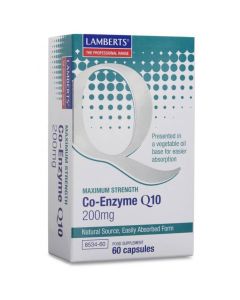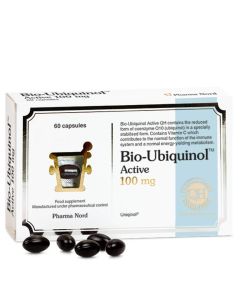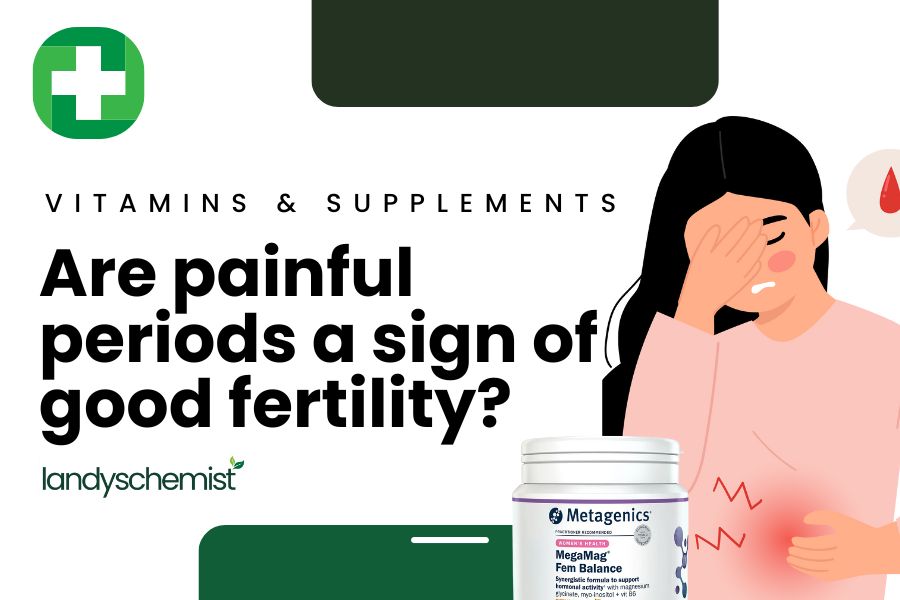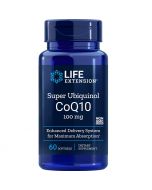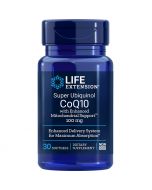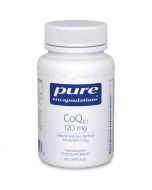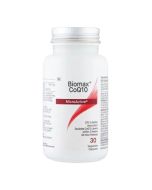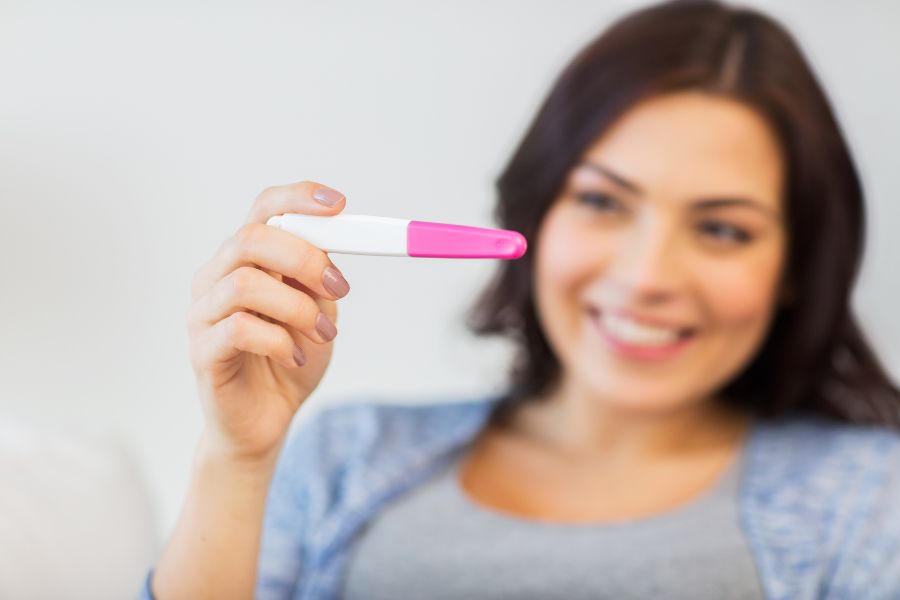
The Benefits of Coenzyme Q10 (COQ10) for Fertility
What is Coenzyme Q10 (CoQ10)?
Coenzyme Q10 (CoQ10), also known as ubiquinone, is a naturally occurring compound found in every cell of the human body. It plays a crucial role in the production of energy within cells and acts as a powerful antioxidant. CoQ10 is particularly concentrated in organs with high energy requirements, such as the heart, liver, and kidneys.
The importance of CoQ10
The key function of CoQ10 is energy production. It helps the enzymes in our bodies to carry out their functions efficiently by producing energy in our cells. These enzymes are important as they are proteins that facilitate various chemical reactions in the body, and they are essential for our overall health.
More specifically, CoQ10 plays a role in the production of adenosine triphosphate (ATP), which is often referred to as the "energy currency" of our cells. ATP provides the energy needed for various cellular processes, including muscle contractions, cell division, and maintenance of vital organs.
Coenzyme Q10 (CoQ10) and Fertility
CoQ10 is like a little power booster that helps the cells produce more ATP efficiently. Without enough CoQ10, our cells may not have enough energy to function sufficiently, affecting our health and well-being. Recently, the importance of CoQ10 has been linked to treating fertility problems in both men and women as it has been showing promising results.
Benefits of Coenzyme Q10 (CoQ10) supplementation for fertility in women and men
CoQ10 is gaining attention due to its link with fertility. Systematic reviews suggest that CoQ10 levels in the body can have a direct impact on fertility, particularly in women. As women age, their CoQ10 levels tend to decline, which can affect egg quality and overall reproductive health.
A study found that women who were given CoQ10 showed a significantly higher fertilisation rate (67.9%) and more high quality embryos compared to women who did not take CoQ10. Therefore, CoQ10 helps to protect the eggs from oxidative damage and supports their energy production, which is vital for successful fertilisation and healthy embryo development. Therefore, maintaining optimal CoQ10 levels may enhance fertility outcomes for women trying to conceive.
A systematic review of male infertility and CoQ10 emphasises the beneficial effects it has on semen parameters. Sperm cells require substantial amounts of energy to swim and fertilise an egg. CoQ10 supports this energy production and helps to maintain sperm health and motility. Research has shown that supplementing with CoQ10 can improve sperm quality, including sperm count, morphology (shape), and motility. Additionally, CoQ10's antioxidant properties can protect sperm from oxidative damage, which can negatively impact fertility.
By incorporating CoQ10 into their daily routine, both men and women can potentially enhance their fertility by supporting healthy reproductive function and optimising energy production at the cellular level.
CoQ10 for PCOS fertility issues
Polycystic Ovary Syndrome (PCOS) is a common hormonal disorder that affects women of reproductive age. PCOS can lead to irregular menstrual cycles, ovarian cysts, and difficulties in conceiving. Unfortunately, women with PCOS tend to have lower levels of CoQ10, which can impact their reproductive health.
By supplementing with CoQ10, individuals with PCOS can potentially improve their egg quality, ovulation, and overall fertility success. CoQ10 helps protect eggs from oxidative stress, supports healthy energy production within the ovaries, and may even enhance the effectiveness of fertility treatments. Incorporating CoQ10 supplements into a comprehensive PCOS management plan can be a successful, natural and effective approach to boost fertility.
CoQ10 for Endometriosis-related fertility issues
Endometriosis is a condition where tissue similar to the lining of the uterus grows outside of it, causing pain and fertility problems. Research suggests that CoQ10 supplementation may benefit women with endometriosis by improving egg quality and ovarian function. It can help counteract oxidative stress, a common factor in endometriosis, which can lead to cellular damage and impaired fertility. By reducing oxidative stress and promoting healthy cell function, CoQ10 can potentially enhance fertility and increase the likelihood of successful conception for women with endometriosis.
Recommended CoQ10 dosage for fertility
The recommended dosage of CoQ10 for fertility varies, but a common recommendation based on studies use around 200-600 milligrams per day.
Choosing the right CoQ10 to support fertility
When choosing a CoQ10 supplement to support fertility, here are some signs of a good-quality product to consider:
- High-quality ingredients: Look for a supplement that uses high-quality CoQ10 sourced from reputable manufacturers. Check for indications of purity and potency.
- Bioavailability: Research suggests that the best bioavailable form of CoQ10 is ubiquinol.
- Optimal dosage: Ensure that the supplement provides the recommended dosage of CoQ10 for fertility, which is typically around 200-600 milligrams per day. Be cautious of extremely high or low dosages.
- No harmful additives: Check the ingredient list for any potentially harmful additives, fillers, or allergens. Choose a supplement that is free from unnecessary additives and artificial colours or flavours.
- Third-party testing: Look for products that have undergone third-party testing for quality, purity, and accuracy of labelling. This ensures that the supplement meets quality standards and contains the stated amount of CoQ10.
Recommended CoQ10 supplements for fertility
Fertility and COQ10 FAQs
Are there any side effects of taking CoQ10 for fertility?
Coenzyme Q10 (CoQ10) is generally considered safe for most individuals when taken at recommended dosages. However, like any supplement, there may be some potential side effects associated with its use. Commonly reported side effects of CoQ10 include mild gastrointestinal symptoms such as nausea, stomach upset, or diarrhoea. It's worth noting that these side effects are generally mild and temporary.
Additionally, CoQ10 may interact with certain medications, such as blood thinners or chemotherapy drugs, so it's crucial to consult with a healthcare professional before starting CoQ10 supplementation, especially if you are taking any medications.
How long should I take CoQ10 before expecting fertility improvements?
The duration of taking CoQ10 before expecting fertility improvements can vary from person to person. While there is no definitive timeline, it is generally recommended to take CoQ10 consistently for at least three to six months before expecting noticeable results. This time frame allows for the supplement to accumulate in the body and potentially support reproductive health.
Can CoQ10 be used as a standalone treatment for infertility?
CoQ10 is often considered as a supplement to support fertility, but it is important to note that it is not typically used as a standalone treatment for infertility. While CoQ10 may have potential benefits for reproductive health, it is usually recommended as part of a comprehensive approach to fertility treatment.
By Panasha Desai, Pharmacist

